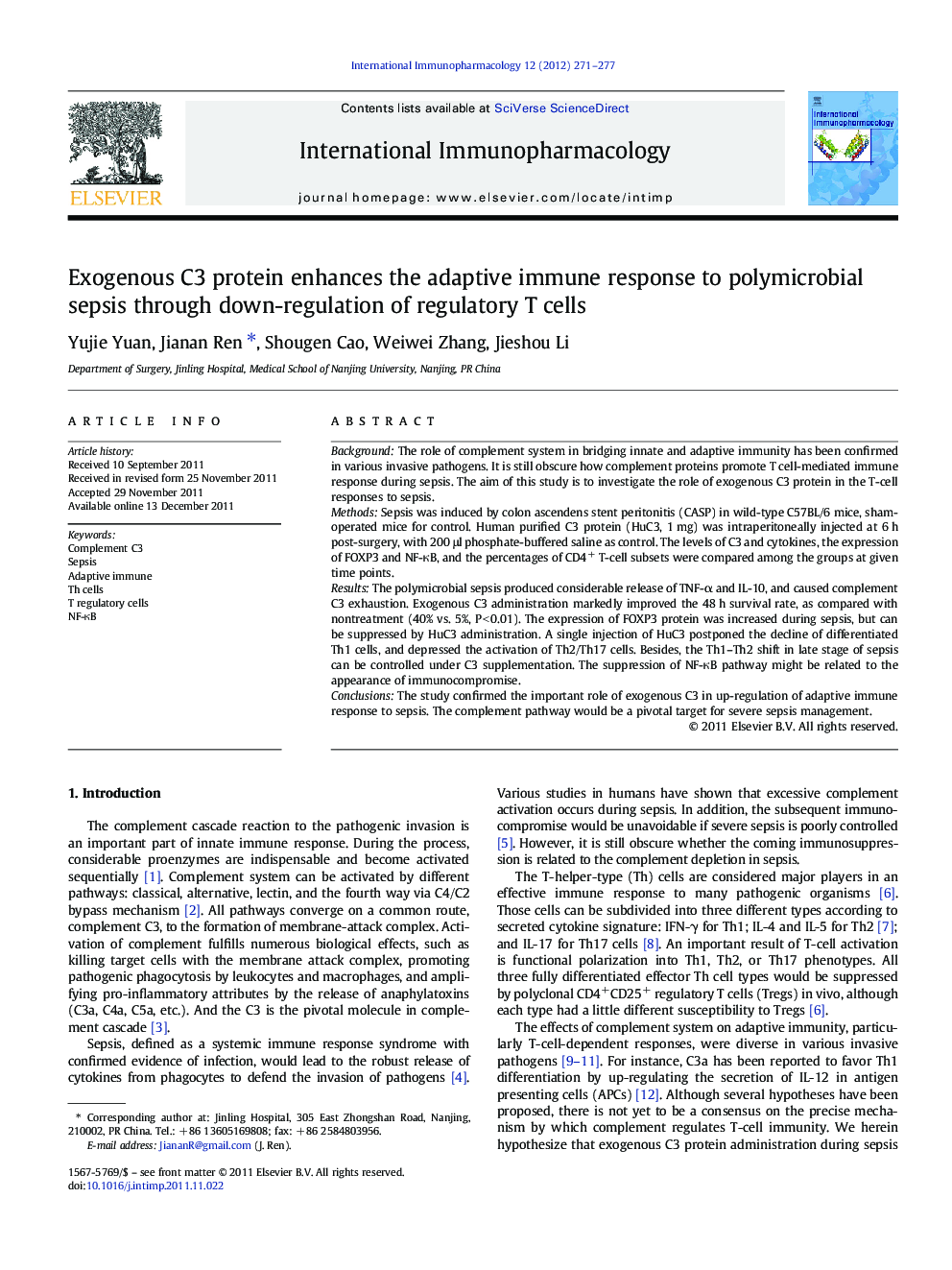| Article ID | Journal | Published Year | Pages | File Type |
|---|---|---|---|---|
| 2541004 | International Immunopharmacology | 2012 | 7 Pages |
BackgroundThe role of complement system in bridging innate and adaptive immunity has been confirmed in various invasive pathogens. It is still obscure how complement proteins promote T cell-mediated immune response during sepsis. The aim of this study is to investigate the role of exogenous C3 protein in the T-cell responses to sepsis.MethodsSepsis was induced by colon ascendens stent peritonitis (CASP) in wild-type C57BL/6 mice, sham-operated mice for control. Human purified C3 protein (HuC3, 1 mg) was intraperitoneally injected at 6 h post-surgery, with 200 μl phosphate-buffered saline as control. The levels of C3 and cytokines, the expression of FOXP3 and NF-κB, and the percentages of CD4+ T-cell subsets were compared among the groups at given time points.ResultsThe polymicrobial sepsis produced considerable release of TNF-α and IL-10, and caused complement C3 exhaustion. Exogenous C3 administration markedly improved the 48 h survival rate, as compared with nontreatment (40% vs. 5%, P < 0.01). The expression of FOXP3 protein was increased during sepsis, but can be suppressed by HuC3 administration. A single injection of HuC3 postponed the decline of differentiated Th1 cells, and depressed the activation of Th2/Th17 cells. Besides, the Th1–Th2 shift in late stage of sepsis can be controlled under C3 supplementation. The suppression of NF-κB pathway might be related to the appearance of immunocompromise.ConclusionsThe study confirmed the important role of exogenous C3 in up-regulation of adaptive immune response to sepsis. The complement pathway would be a pivotal target for severe sepsis management.
► CASP-induced sepsis was used to investigate T-cell responses. ► A significant expansion of Tregs emerged in late stage of sepsis. ► The Tregs expansion was associated with the subsequent Th1–2 shift. ► Exogenous C3 can inhibit Tregs expansion during sepsis, with improved outcomes. ► A possible mechanism would be associated with NF-κB pathway on Tregs.
